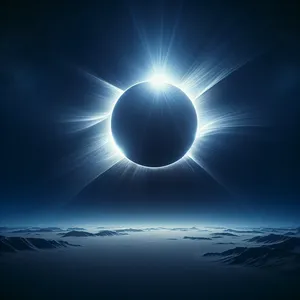Navigating the Celestial Calendar: Eclipses in the Upcoming Year
Eclipses are more than just spectacular sights; they are celestial milestones that mark significant moments in the astronomical calendar. Understanding their schedule is crucial for anyone keen on observing these rare occurrences.
Eclipses, whether solar or lunar, are not only awe-inspiring, but they also provide crucial insights into the mechanics of our solar system. In the coming months, astronomy enthusiasts and the public alike have the opportunity to witness these events firsthand. A solar eclipse occurs when the moon passes between the Earth and the sun, casting a shadow on Earth. Conversely, a lunar eclipse happens when the Earth positions itself between the sun and the moon, casting the moon into shadow. Each type of eclipse offers a unique observational experience and has different viewing requirements. Solar eclipses, especially total eclipses, are rare and occur in specific locations on Earth. Viewing them requires caution due to the potential harm to the eyes from the sun's rays. Special glasses or indirect viewing methods are recommended. The next solar eclipse, a partial one, is anticipated to grace the skies over South America and the Pacific Ocean, offering a spectacular display for those within its viewing path. Lunar eclipses, on the other hand, are more accessible since they are visible from anywhere on the nighttime side of the Earth. These phenomena manifest in varying degrees – from penumbral to partial, and the stunning total eclipses, often casting the moon in a dramatic red hue. The upcoming lunar eclipse promises to be a memorable event, with expectations of a reddish tinge adorning the moon's surface as it passes through Earth's shadow. Preparing to observe these events involves understanding the timing and visibility from your location. Many websites and mobile apps provide detailed eclipse schedules and viewing tips. Additionally, local astronomy clubs and observatories often host viewing parties and educational sessions, making the experience both enriching and communal. Beyond their immediate visual spectacle, eclipses have significant scientific value. They offer opportunities for professional and amateur astronomers to conduct experiments and gather data on the sun's corona, lunar surface, and the intricacies of celestial mechanics. These events also serve as a reminder of the vastness of the universe and our place within it, sparking curiosity and wonder about the cosmos.
Explore More
Eclipses are not only a testament to the celestial ballet of our solar system but also a reminder of its profound impact on culture, science, and our understanding of the universe. The upcoming eclipses offer a unique opportunity to connect with this cosmic phenomenon. Whether you're an avid astronomer or a curious observer, ensure to mark your calendars and prepare for these unforgettable celestial events.
